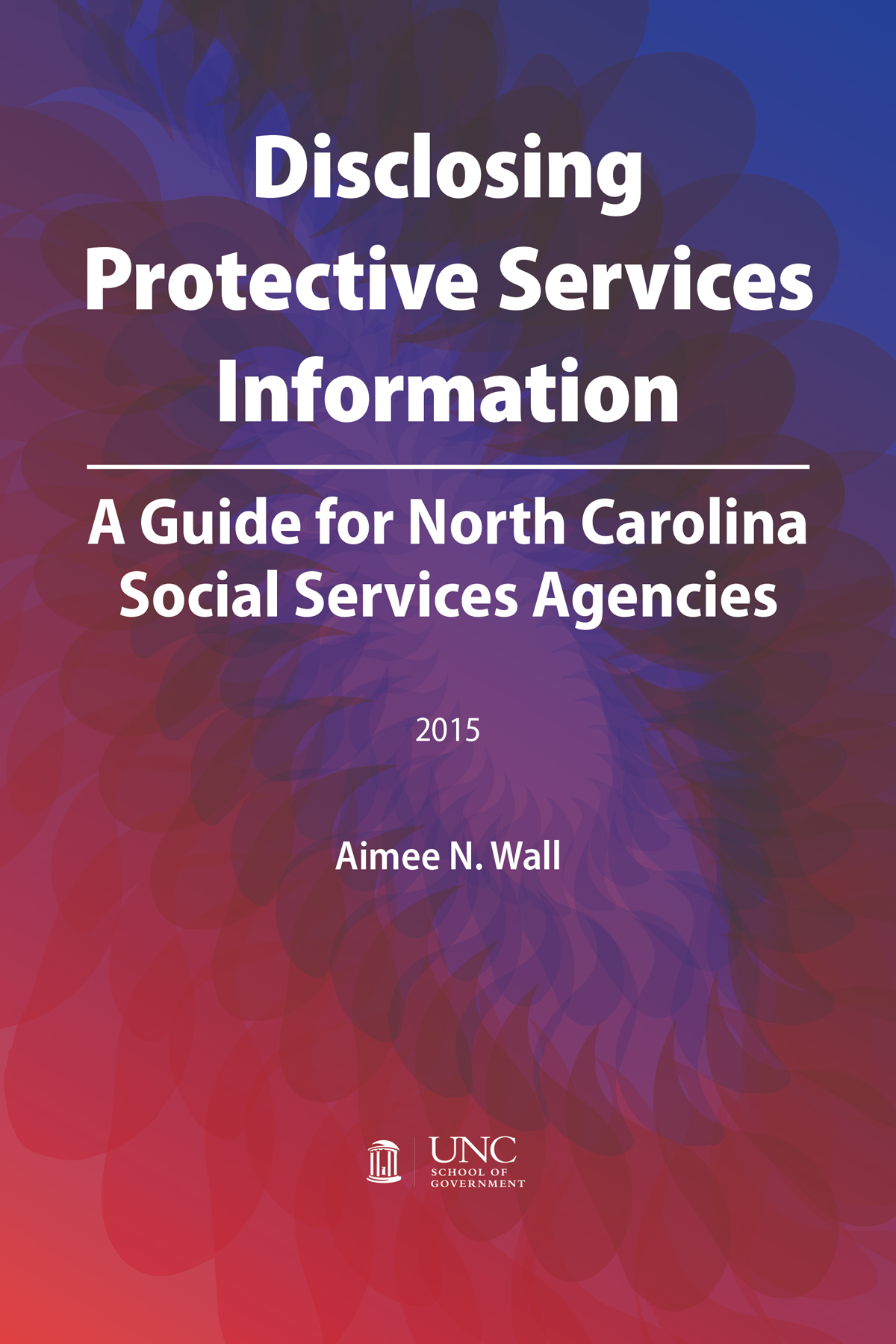Disclosing Protective Services Information: A Guide for North Carolina Social Services Agencies
Confidentiality laws are confusing, and there many of them that overlap, intersect, contradict, and duplicate. Numerous state and federal laws establish confidentiality protections for protective services information received, created, and maintained by county agencies providing social services. There is also a constitutionally recognized right to informational privacy.
The confidentiality protection established by this body of law is not absolute. Laws often try to strike the right balance between protecting an individual’s privacy and supporting other interests or policy objectives, and they are not always consistent or clear. As a result, county social services officials and attorneys often face the difficult task of finding the applicable laws and determining how best to apply them.
This book is intended to help with that process by identifying, describing, and analyzing many of the key federal and state confidentiality laws that apply to disclosure of protective services information by county departments of social services. The book includes:
- an overview of the most general, overarching state law that applies to protective services records, G.S. 108A-80, and the accompanying state regulations,
- an exploration of laws that specifically apply to adult protective services and child protective services,
- a chapter on disclosure of health-related information, and
- an examination of the rights of individuals to access information about themselves that is contained in a protective services record.
This publication is available in print and as an eBook. eBooks can be downloaded and read on your desktop, laptop, and/or a variety of mobile devices with an e-reader application. eBooks are only licensed for use by one individual and cannot be shared. For more information about ebooks, click here. To purchase the eBook version of this publication, click here.




